ZIRKULAR BAT Workshop Tackles Circular Economy of Batteries
Gipuzkoa gathers experts from leading European companies and organizations at the ZIRKULAR BAT Workshop to explore industrial and technological opportunities in the circular economy of batteries.
The forum emphasizes the need to develop efficient storage systems and presents innovative solutions for recycling electric batteries, thus driving economic progress and job creation in the Gipuzkoa region.
The Department of Sustainability of the Provincial Council of Gipuzkoa, CIDETEC Energy Storage, and the Gipuzkoa Climate Change Foundation, Naturklima, successfully held the ZIRKULAR BAT workshop, an international event focused on the opportunities that the circular economy will generate in the battery industry. The challenge of the energy transition involves electrification based on renewables. In this context, energy storage and its availability through the use of batteries are key aspects that will multiply the presence and production of these devices, posing a new challenge: the recycling of these devices. This reality opens up significant opportunities for sectors such as the automotive industry, which alone employs 40,000 people in the Basque Country. At the forum, experts from leading European companies and organizations addressed the challenge of creating a circular economy around the battery industry with an industrial focus. Key topics included market overview, logistics and handling, the second life of batteries, and recycling.
José Ignacio Asensio, the Deputy for Sustainability and President of Naturklima, delivered the institutional opening of the event. In his speech, the regional official highlighted that “we are at a crucial moment for the automotive industry, and the transition to electric vehicles will play a fundamental role in this transformation. In the next five years, the EU plans to increase from the current 15 million electric cars to 70 million. It is essential to ensure that batteries do not become polluting waste at the end of their life cycle. Europe has already made significant strides with the EU Battery Passport regulation, which governs the entire lifecycle of batteries. Gipuzkoa, with a solid track record in Circular Economy, has a great opportunity to lead this transition, promoting energy storage technologies essential for the maximum utilization of our photovoltaic installations. Zirkular Bat represents Gipuzkoa’s commitment to a new green economy, crucial for economic progress and job creation in Gipuzkoa. It is also a significant step towards climate neutrality by 2050 and a 55% reduction in emissions by 2030.”
Asensio continued his speech by explaining that “in Gipuzkoa, we have made significant strides in the energy transition. With 88 municipalities, we have installed self-consumption energy communities using photovoltaic panels in nearly 50 localities, generating 5 gigawatt-hours of solar energy last year. However, to maximize the consumption of this renewable energy, we need to develop efficient storage systems. Recycling electric batteries is a key solution to achieve this goal, allowing for greater utilization of solar energy and providing significant savings for both households and industries. Our commitment to the circular economy and battery recycling places us at the forefront of this energy transition.”
This meeting was held at the headquarters of Naturklima and featured renowned international experts from leading European companies and organizations such as Óscar Miguel, Deputy Director of CIDETEC Energy Storage; Anna Braunfels from Systemiq; Marcos Ierides from Bax & Company; Axel Wimby from Cling Systems; Leonardo Chieco from Masmec; Belén Neira from Volvo Energy; Rocío Palomino from Capital Energy; Justo García from Orano; Christian Stein from Ecobat; and Sabrina Zellmer from TUBS IPAT/FHG IST.
Zirkular Bat: A Fundamental Pillar for the Circular Economy in Gipuzkoa
The “Zirkular Bat” project is an innovative Circular Battery Hub in Gipuzkoa, inaugurated last November at the Gipuzkoa Climate Change Foundation Naturklima facilities. This project aims to create an ecosystem focused on the recycling of electric batteries for energy storage. This project acts as a catalyst in the diagnosis, disassembly, and classification for the recovery of valuable materials from batteries, their reuse in a second life, and the recycling of components and raw materials. To ensure the sustainability and circularity of the process, an industrial recycling network will be established.
The Zirkular Bat laboratory will be a key piece in building a strategic sector for Gipuzkoa’s industry. This laboratory will not only focus on the recovery and reuse of batteries at the end of their useful life but also on reducing the dependency on critical materials in the manufacture of new batteries through component reuse. This comprehensive approach will contribute to decarbonization and promote a more efficient and sustainable economy.
Commitment to Gipuzkoa’s Sustainable Future
Zirkular Bat exemplifies Gipuzkoa’s commitment to leading the transition to a greener and more resilient economy. In a context full of challenges and opportunities in the field of sustainability and the circular economy, the Department of Sustainability of the Provincial Council of Gipuzkoa, Naturklima, and CIDETEC Energy Storage play an active role in this innovative project. Public-private collaboration will be essential, involving various Gipuzkoan companies and agents from the territory’s scientific and technological system.
The project aims to identify strengths in the business ecosystem, promote collaboration to generate new businesses, seek innovation opportunities, and support calls for research and development projects. Additionally, technological and regulatory surveillance will be conducted, along with participation in European sector forums. This ambitious project not only addresses the recovery and reuse of batteries but also significantly contributes to overcoming Gipuzkoa’s energy dependency, driving economic progress and employment in the mobility sector, which is strategic for our economy.









